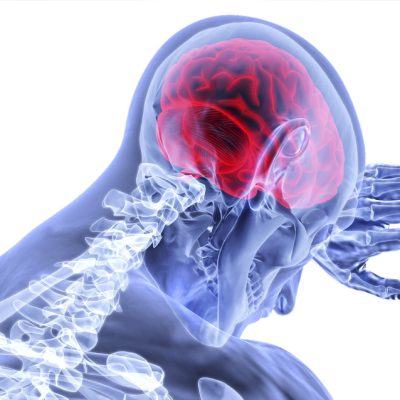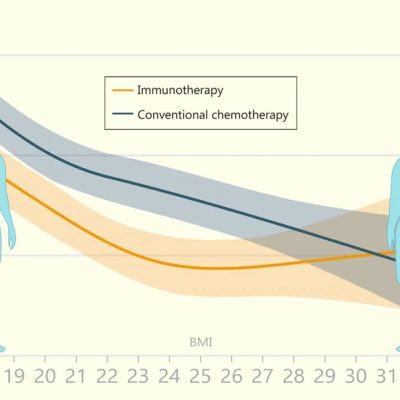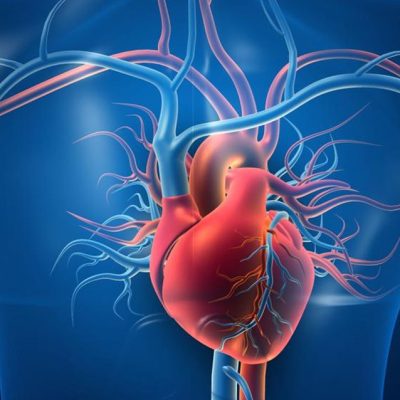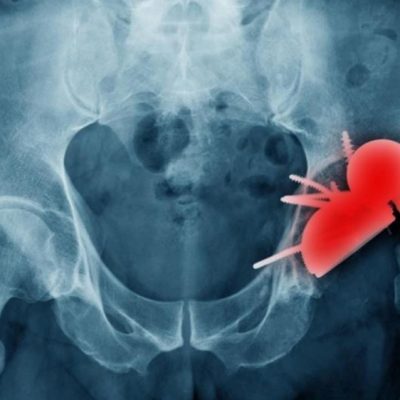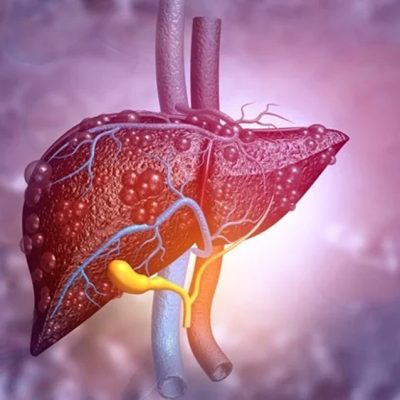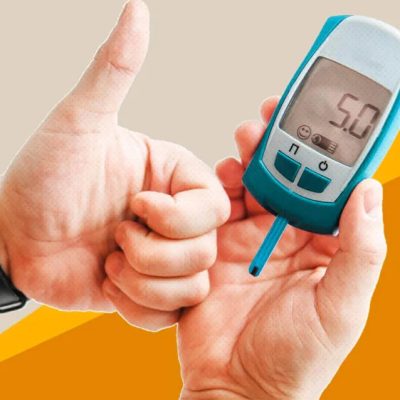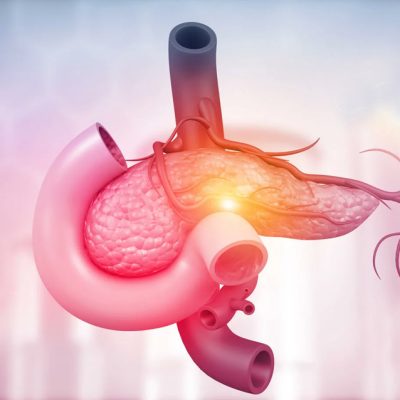More than one-third of adults in the United States have metabolic syndrome, a cluster of conditions that significantly raise a person's risk of heart disease, stroke, and type 2 diabetes. These conditions include high blood pressure, elevated blood sugar, excess abdominal fat, and abnormal cholesterol levels. In a new clinical trial, researchers at the Salk Institute and … [Read more...]
Sport-Related Stress may Affect Whether College Athletes eat Enough Calories
Studies have long shown that unhealthy attitudes about eating -- like desiring a thinner body or deliberately restricting caloric intake -- can lead to the underconsumption of nutrients, the team said. College athletes may face pressures to maintain specific body types for competitive reasons, so they can be especially vulnerable to these phenomena, according to the … [Read more...]
New Blood Test Could be an Early Warning for Child Diabetes
New study from King's College London published in Nature Medicine reveals a new relationship between lipids and diseases impacting metabolism in children, which could serve as an early warning system for conditions like liver disease. Using machines that test blood plasma in babies that already exist in hospitals, the researchers suggest this could help doctors spot early … [Read more...]
Study Proposes New Heart Failure Treatment Targeting Abnormal Hormone Activity
In heart failure, which is considered a global pandemic, the heart can no longer pump blood effectively. In HFpEF, the heart can pump normally but its muscles are too stiff to relax to re-fill the chambers with blood properly. It is often seen in older adults and people with multiple risk factors including high blood pressure (hypertension), obesity and diabetes. They … [Read more...]
Most Accurate Ultrasound Test could Detect 96% of Women with Ovarian Cancer
An ultrasound test that detected 96% of ovarian cancers in postmenopausal women should replace current standard of care test in the UK according to a new study. In a paper published in Lancet Oncology today (Monday 30 September), research funded by the National Institute for Health and Care Research (NIHR) and led by Professor Sudha Sundar from the University of Birmingham … [Read more...]
New Therapeutic Approach to Preventing Cancer From Spreading to the Brain
Researchers at McMaster University have identified a new therapeutic approach to preventing cancer from spreading to the brain. In a new study, published recently in the journal Cell Reports Medicine, researchers Sheila Singh and Jakob Magolan discovered a critical vulnerability in metastatic brain cancer, which they say can be exploited with new drugs to prevent … [Read more...]
Games, Puzzles and Reading can Slow Cognitive Decline in the Elderly — Even in Those with Mild Cognitive Impairment
The aging process can lead to diminished cognitive functioning for older adults. In addition, about 10 percent of people previously diagnosed with mild cognitive impairment develop Alzheimer's disease or other forms of dementia every year. Although a few studies have found that activities such as putting together jigsaw puzzles can protect against cognitive aging, the … [Read more...]
BMI’s Relation to Cancer Therapy Mortality Risks Not so Straightforward
While being overweight increases the risk of developing lifestyle-related diseases, there is a phenomenon known as the obesity paradox where a decreased risk of death has been seen during cancer therapy. However, that paradox might not be the trend for all cancer therapies, an Osaka Metropolitan University team reports in JAMA Network Open, a publication of the American Medical … [Read more...]
Like Father, Like Daughter
When they become fathers, men who have an unhealthy, high-cholesterol diet can cause increased risk of cardiovascular disease, or CVD, in their daughters, a University of California, Riverside-led mouse study has found. The research, published in the journal JCI Insight, is the first to demonstrate this result seen only in female offspring. CVD, the leading cause of death … [Read more...]
Excessive Light Pollution May Increase Risk of Alzheimer’s, Especially in Younger People
In some places around the globe, the lights never go off. Streetlights, roadway lighting, and illuminated signs can deter crime, make roads safer, and enhance landscaping. Undisrupted light, however, comes with ecological, behavioral, and health consequences. In the US, some states have legislation in place to reduce light pollution; however, levels of light at night remain … [Read more...]
Infections Following Hip Replacement Associated with an Increased Risk of Death, Study Finds
Patients who develop a periprosthetic joint infection (PJI) after a total hip replacement have more than a five-fold increased risk of mortality within 10 years, according to new research published in the Journal of Bone and Joint Surgery. In one of the largest studies to date of patients with PJI after total hip arthroplasty (THA), researchers from ICES, Sunnybrook Research … [Read more...]
It Only Takes 15 Minutes to Change Your Health
Corporate Cup, lunchtime yoga, or even 'walk and talks', organisations come up with all sorts of wellness initiatives to encourage people to be more active in the workplace. But before you duck and hide, new research shows that all it takes is 15 minutes and a touch of gamification to put you on the path to success. Assessing results from 11,575 participants, across 73 … [Read more...]
Hepatic diseaseHepatic diseaseHepatic disease
Childhood obesity can contribute to the development of common immune-mediated skin diseases (IMSDs), such as alopecia areata, atopic dermatitis, and psoriasis, new research finds. Maintaining a healthy weight could potentially help lower the chances of developing these skin conditions. A novel study in the Journal of Investigative Dermatology, published by Elsevier, details the … [Read more...]
Hepatic disease: A Camu-Camu Fruit Extract to Reduce Liver Fat
A research team from Université Laval has shown the benefits of camu-camu on non-alcoholic fatty liver disease, which affects over seven million people in Canada. This exotic fruit reduces liver fat levels. Over 12 weeks, thirty participants took either camu-camu extract or a placebo at different times in this randomized clinical trial. Participants underwent magnetic … [Read more...]
Inflammation During Childhood Linked to onset of Mental Health Issues in Early Adulthood
Children who have persistently raised inflammation are at a higher risk of experiencing serious mental health disorders including psychosis and depression in early adulthood, according to a study published today in JAMA Psychiatry. The research lead by the University of Birmingham also found that those who had experienced inflammation at a young age were at a higher risk of … [Read more...]
Study Reveals Best Exercise for Type-1 Diabetes Patients
A new study has revealed the best types of exercise for patients with type-1 diabetes. The research was led by the Universidade Federal do Vale do São Francisco in partnership with Staffordshire University to investigate training optimisation for diabetic patients. "This study is important because diabetic patients often lack motivation to exercise as a means of managing … [Read more...]
Chlamydia Can Settle in The Intestine
Chlamydiae are sexually transmitted pathogens that can apparently survive in the human gut for a long time. Researchers from Würzburg and Berlin report this in the journal PLOS Pathogens. People who are infected with chlamydia can transmit these bacteria to other people during unprotected sex. The pathogens usually cause no or only mild symptoms at first, such as itching in … [Read more...]
The Secret to Sleepy Cells’ Control of Inflammatory Secretions
Scientists at Sanford Burnham Prebys and the La Jolla Institute for Immunology have revealed a new secret regarding senescence, a cellular state similar to sleep that is more likely to affect aged cells. This drowsy condition is known to provide health benefits under certain conditions while also potentially causing collateral damage. "Senescence is not all bad," said Peter … [Read more...]
Bed-Sharing Has no Impact on Children’s Psychological Development
Parental bed-sharing is unlikely to impact children's psychological development, new research has found. The study from the University of Essex looked at nearly 17,000 British babies and tracked them for 11 years -- finding kids who shared beds were happy and healthy. Dr Ayten Bilgin, from the Department of Psychology, found no association between bed-sharing at 9 months … [Read more...]
Sport or Snack? How our Brain Decides
Should I go and exercise, or would I rather go to the café and enjoy a delectable strawberry milkshake? Until now, what exactly happens in our brain when we make this decision has been a mystery to science, but researchers at ETH Zurich have found the solution. They deciphered which brain chemical and which nerve cells mediate this decision: the messenger substance orexin and … [Read more...]
Swipe up! Health apps deliver real results en masse
In a new study, researchers synthesised data from 206,873 people across 47 studies, finding that digital health tools -- like mobile apps, websites, and text messages -- can significantly improve health and wellbeing by keeping you active, boosting steps, and improving your diet and sleep. Specifically, electronic and mobile health interventions can help people … [Read more...]
Significant Link Found Between Heme Iron, Found in Red Meat and Other Animal Products, and Type 2 diabetes risk
Higher intake of heme iron, the type found in red meat and other animal products -- as opposed to non-heme iron, found mostly in plant-based foods -- was associated with a higher risk of developing type 2 diabetes (T2D) in a new study led by researchers at Harvard T.H. Chan School of Public Health. While the link between heme iron and T2D has been reported previously, the … [Read more...]
Short, Intense Bursts of Exercise More Effective After Stroke than Steady, Moderate Exercise
One-minute, short bursts of high-intensity interval training for 19 minutes may be more effective for improving fitness among people six months or more after a stroke than traditional, 20-30 minutes of moderate-intensity exercise sessions, according to research published today in Stroke, the peer-reviewed scientific journal of the American Stroke Association, a division of the … [Read more...]
Ketogenic Diet may reduce friendly gut bacteria and raise cholesterol levels
Published in Cell Reports Medicine, the research from the Centre for Nutrition, Exercise, and Metabolism involved 53 healthy adults for up to 12 weeks. Participants followed either a moderate sugar diet (control), a low-sugar diet (less than 5% of calories from sugar), or a ketogenic (keto) low-carbohydrate diet (less than 8% of calories from carbohydrates). Key findings … [Read more...]
Type 2 Diabetes Can be Prevented by Diet and Exercise Even in Individuals With a High Genetic Risk
A new study from the University of Eastern Finland is the first in the world to show that a healthy diet and regular exercise reduce the risk of type 2 diabetes even in individuals with a high genetic risk. In other words, everyone benefits from lifestyle changes, regardless of genetic risk. Type 2 diabetes is a global problem. According to the International Diabetes … [Read more...]
A Ketogenic Diet Could Improve The Response to Pancreatic Cancer Therapy
A study of fasting and the ketogenic diet reveals a new vulnerability of pancreatic tumors to an existing cancer drug. Scientists at UC San Francisco have discovered a way to get rid of pancreatic cancer in mice by putting them on a high fat, or ketogenic, diet and giving them cancer therapy. The cancer therapy blocks fat metabolism, which is the cancer's only source of … [Read more...]
New Vaccine Against Cervical Cancer Combines Prophylactic and Therapeutic Activity
A new vaccine against cancer-causing human papillomaviruses (HPV) is intended to help increase the rate of HPV vaccinations, particularly in developing countries. Scientists at the German Cancer Research Center (DKFZ) have developed a completely new vaccination concept for this purpose. The vaccine is inexpensive and protects mice against almost all cancer-causing HPV types. In … [Read more...]
Feeding Infants Peanut Products Protects Against Allergy into Adolescence, Study Suggests
Feeding children peanuts regularly from infancy to age five reduced the rate of peanut allergy in adolescence by 71%, even after many years when the children ate or avoided peanut as desired. The new findings provide conclusive evidence that introducing peanuts into babies' diets early will increase the probability of long-term prevention of peanut allergy. Lead … [Read more...]
Confronting Trauma Alleviates Chronic Pain Among Older Veterans
A new study led by UCLA Health and the U.S. Veterans Affairs Office found chronic pain among older adults could be significantly reduced through a newly developed psychotherapy that works by confronting past trauma and stress-related emotions that can exacerbate pain symptoms. Published in JAMA Network Open on June 13, the study compared the newer therapy, known as emotional … [Read more...]
Home Test Reveals The Risk of Heart Attack in Five Minutes
The study, published in Journal of the American Heart Association, uses data from the SCAPIS population study, which is based at the University of Gothenburg, with the Swedish Heart Lung Foundation as its main sponsor. The study was led by Göran Bergström, Professor of Clinical Physiology at Sahlgrenska Academy at the University of Gothenburg, senior physician at Sahlgrenska … [Read more...]
- « Previous Page
- 1
- 2
- 3
- 4
- 5
- …
- 422
- Next Page »





